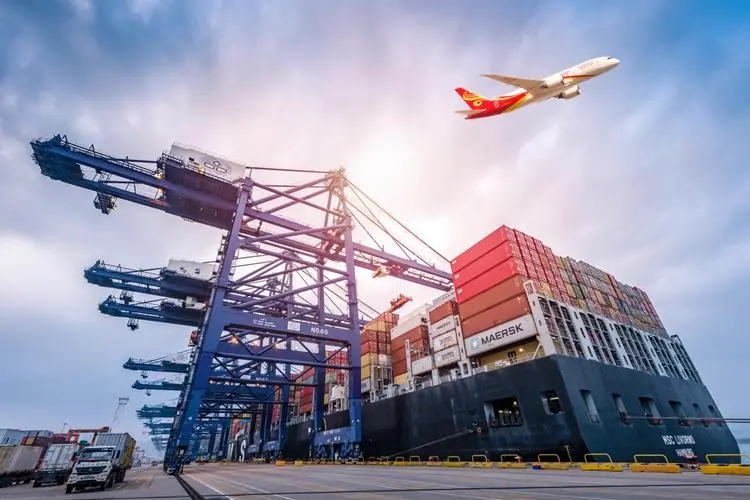"2023 is an important point for global retail e-commerce to stabilize from shock to stabilization." Song Xiaojun, vice president of Amazon China and head of Amazon Global Store China seller development, said at the recent 7th Global Cross-Border E-Commerce Summit that global online consumption has experienced ups and downs under the impact of the epidemic in the past few years, and global cross-border e-commerce has experienced high growth at the beginning of the epidemic and a rebound at a later stage, and the growth rate is expected to return to the level before the epidemic in 2023, reaching 17 percent.
Song Xiaojun said that in the next five years, the global retail e-commerce compound annual growth rate is expected to remain above double digits. Among them, Latin America, the Middle East, Asia, Eastern Europe and other regions will lead the global growth rate; while Brazil, the Middle East, Turkey, India, Mexico and other emerging markets e-commerce development will be more bright. At the same time, around the world, e-commerce retail penetration rate is still relatively low, in addition to China, most countries, including the United States, Germany, Japan, these consumer powerhouse, e-commerce penetration rate of only more than 10%, some countries in the single-digit level. These create a huge growth potential for overseas e-commerce and enhance the certainty of strong cross-border e-commerce development.

"In recent years, China's export cross-border e-commerce has shown strong resilience." In Song Xiaojun's view, Chinese cross-border e-commerce companies focused on consumer electronics and apparel categories in the early days, and have blossomed across the board in categories such as home, kitchen, pet, outdoor and sports during the epidemic in the past few years. Recently, there are even more Chinese cross-border e-commerce enterprises with large-scale IP tide play, fitness equipment, energy storage and other emerging categories in the international market to make a name for themselves, opening up a new growth route for the development of the industry.
Global e-commerce look at China, Chinese e-commerce look at Hangzhou. Wang Yongfang, Party Secretary and Director of Hangzhou Municipal Bureau of Commerce, released the "New E-Commerce Capital Development Report" at the meeting. He said that in 2022, Hangzhou's e-commerce platform will have a turnover of more than 8 trillion yuan in the domestic market, accounting for more than half of the national e-tailing volume; Hangzhou e-commerce enterprises will sell their goods to more than 200 countries and regions around the world. Hangzhou has become the world's largest e-commerce transactions and the city with the widest coverage. 2022, the cross-border e-commerce import and export in Hangzhou Comprehensive Pilot Zone reached 120.3 billion yuan, an increase of 8% year-on-year, accounting for 16.25% of foreign trade import and export. "Hangzhou Comprehensive Pilot Zone continues to rank first in the annual assessment of the national comprehensive pilot zone. High-value-added global brands, high-tech cross-border e-commerce service industry and high-efficiency digital supply chain have become the new features of Hangzhou's cross-border e-commerce development." Wang Yongfang said.
To better promote the high-quality and globalized development of China's cross-border e-commerce, Long Yongtu, co-chair of the Global CEO Development Conference and chairman of the China and Globalization Think Tank, gave three suggestions: first, to continue to give full play to the advantages of cross-border e-commerce to promote the high-quality development of the real economy, especially the manufacturing industry; second, to give full play to the unique advantage of strong penetration of cross-border e-commerce to break the current siege and blockade; third, relying on the advantage of China's large scale of cross-border e-commerce, contribute Chinese wisdom and Chinese experience to the rule-making of global cross-border e-commerce.
"The experience of China's cross-border e-commerce system innovation as well as cases should be replicated around the world. Particularly important aspects at present are: protecting the interests of consumers in cross-border e-commerce, protecting intellectual property rights, making cross-border e-commerce flow more smoothly; coordinating in cross-border e-commerce taxation as well as other important aspects, and some practices developed in the past can become the basis for future international rules." Long said that in order to cope with future cross-border e-commerce rules, cross-border e-commerce should be cultivated at the moment to have credibility, with the concept of rule of law in terms of branding, environmental protection, safety and taxation. Only enterprises that know international rules can become the leaders of global rules after the birth of international rules.

Xu Ningning, Executive Director of China-ASEAN Business Council and Chairman of RCEP Industry Cooperation Committee, made suggestions from the new opportunities brought by the entry into force of RCEP. He said that RCEP has entered into force for all 15 member countries, and there is a special chapter on "e-commerce" in the agreement, and the signatories have reached a series of consensus on opening up the market for e-commerce. This favorable condition provides a priority and feasible direction for the development of cross-border e-commerce with high quality and globalization.
"The next step is to seize the RCEP more effectively and develop cross-border e-commerce cooperation with neighboring ASEAN countries by leveraging the close economic and trade cooperation between China and ASEAN." Xu Ningning said, first, China and ASEAN countries should actively implement the already reached multilateral and bilateral consensus documents on digital economy and cross-border e-commerce cooperation, and keep expanding new consensus to jointly solve the relevant obstacles that restrict cross-border e-commerce cooperation. Second, local governments, industries and enterprises must be informed and take positive actions. It is recommended that provinces, autonomous regions and municipalities should understand the concerns, plans and policies of the RCEP countries concerned about the development of cross-border e-commerce digital economy, and dovetail and cooperate with the needs, concerns and development plans of the cooperating country parties in order to promote cooperation more effectively. Third, to establish industry cooperation mechanisms. For example, establish unofficial, non-profit, business-oriented cooperation mechanisms such as China-ASEAN Cross-border E-Commerce Industry Cooperation Committee and RCEP Cross-border E-Commerce Industry Cooperation Committee, with the corresponding business association leaders and leading enterprises of each country as representatives, to jointly form industry cooperation committees to promote industry cooperation, improve the level of cooperation, and change e-commerce enterprises in entering ASEAN The phenomenon of "blind men feeling the elephant", "scattered soldiers" and "fighting alone".

